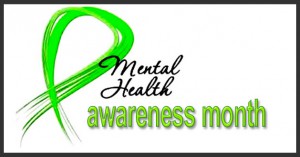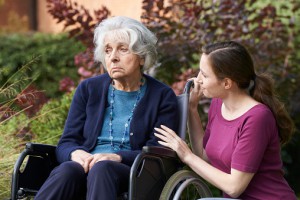According to the Anxiety and Depression Society of America, about 20 percent of people with social anxiety disorder (SAD) also suffer from alcohol abuse or dependence.
Social anxiety is defined as a disorder that is triggered by social situations where your emotions may arise causing you to have difficulty talking to others, fear being unjustly judged by others, become self-conscious while in the company of others or get physically ill at the thought of attending a social event.
By consuming alcohol, you could possibly experience the illusion of reducing the symptoms of SAD, but it can also lead to an additional issue with alcohol dependence and abuse.
For some, alcohol and SAD are a dangerous combination; since alcohol may give you a false sense of calm when in social situations. Additionally, it can also you to delay your decision to seek treatment. It may also interfere with an existing treatment. While seeming to help quell the anxiety, alcohol can actually worsen the symptoms of SAD.
If you have been diagnosed with SAD and consume alcohol to ease the symptoms, you may experience the following:
- Drinking more or longer than you intended
- Have difficulty limiting your consumption of alcohol
- Experience strong urges to drink
- Continuing to drink even though your anxiety is increasing
When alcohol is over consumed, it can lead to worsening the symptoms of social anxiety as well as causing:
- Morning hangovers
- Dizziness
- Nausea
- Dehydration
- Low blood sugar
Most anxiety disorders can be treated in similar ways. Some effective ways to calm your social anxiety are to sleep regularly, limit the amount of caffeine and alcohol consumed, eat a healthy diet, and implement relaxation methods such as taking deep breaths, keeping a journal, thinking positive thoughts, yoga, painting or listening to soothing music until the anxiety begins to dissipate.
If these methods are not effective, you may want to seek professional help. If you have uncontrolled social anxiety disorder and are compensating with alcohol, you may want to speak with a mental health and addiction specialist at Flushing Hospital Medical Center’s Mental Health Center. Call 718-670-4416 to schedule an appointment.
All content of this newsletter is intended for general information purposes only and is not intended or implied to be a substitute for professional medical advice, diagnosis or treatment. Please consult a medical professional before adopting any of the suggestions on this page. You must never disregard professional medical advice or delay seeking medical treatment based upon any content of this newsletter. PROMPTLY CONSULT YOUR PHYSICIAN OR CALL 911 IF YOU BELIEVE YOU HAVE A MEDICAL EMERGENCY.






